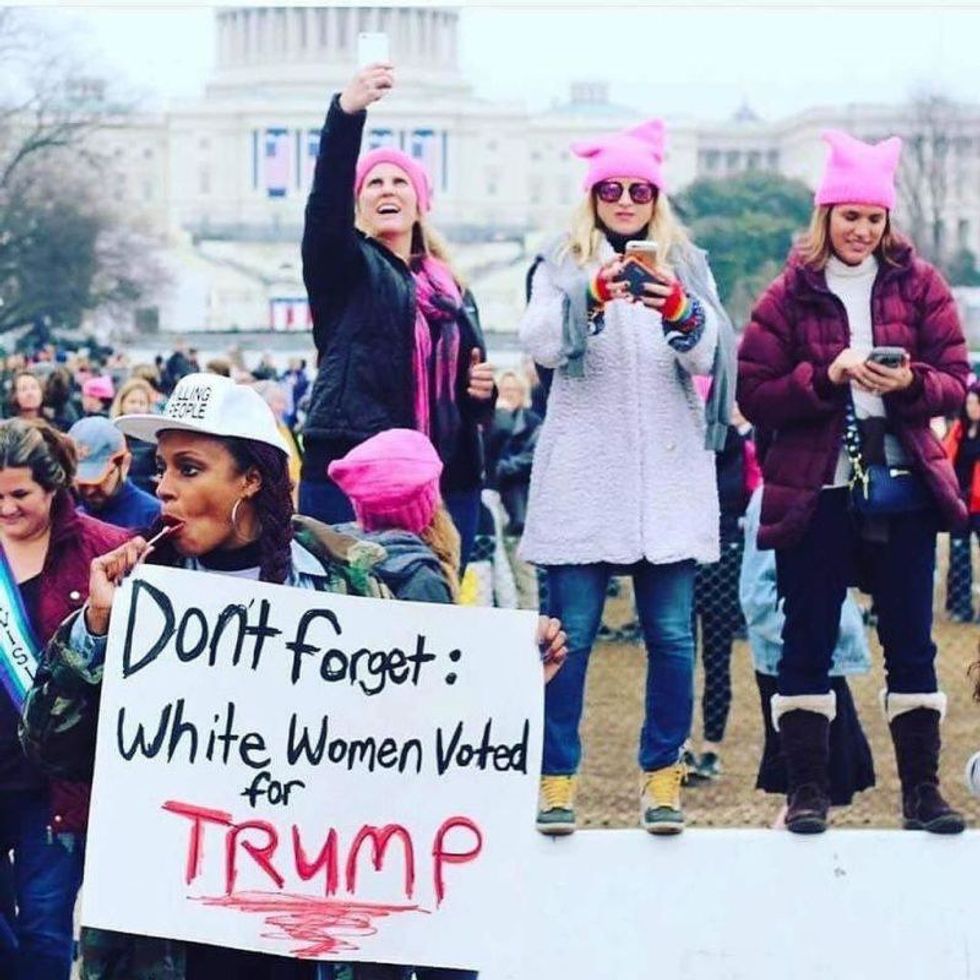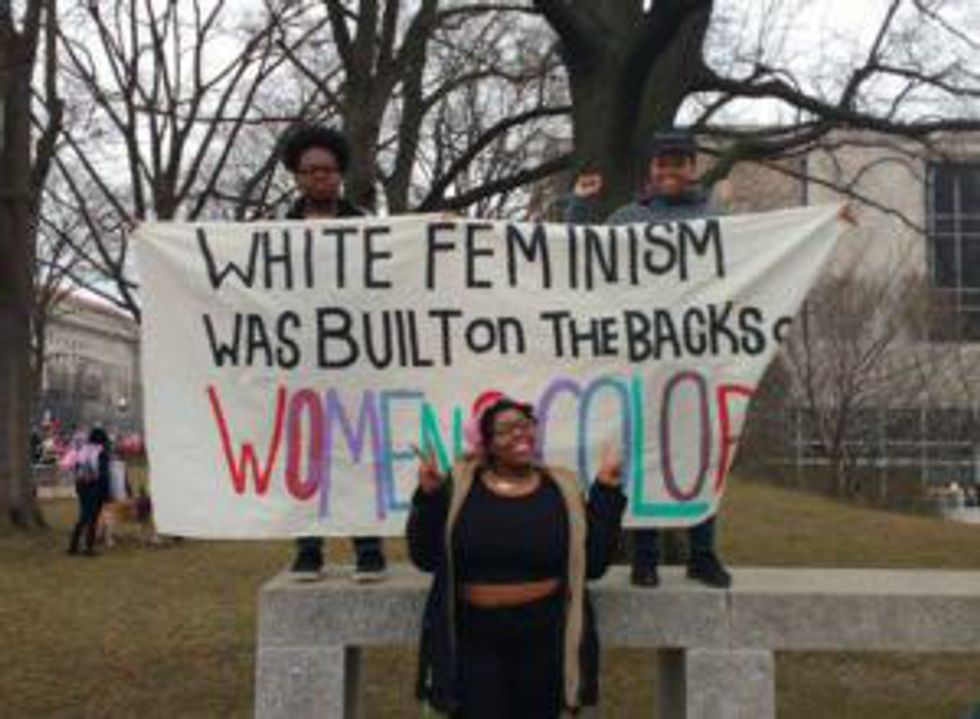The first time I heard the term intersectionality was on a celebrity's twitter bio, describing himself as an "intersectional feminist." I had absolutely no idea what that meant. It was not until I took a class during winter term at Drexel that I learn the definition of intersectionality and why it is vital to the feminist movement. You may be asking yourself, what even is intersectionality? Look no further- I'm about to lay it all out for you.
The Definition
Intersectionality, as defined in an article by Steve Williams, is "a sociological theory about how an individual can face multiple threats of discrimination when their identities overlap a number of minority classes, such as race, gender, age, ethnicity, health and other characteristics."
Intersectionality theory was coined by a legal scholar named Kimberlé Crenshaw in 1989. Crenshaw's paper introducing intersectionality here.
Imagine this- a black transgender woman may face discrimination in the workplace. Is this because she is black, or because she is transgender woman? The answer is both. Through a lens of intersectionality, we can see that these overlapping identities- gender identity and race- create a bigger struggle for the trans woman. Generally, trans women of color face prejudices, sometimes homophobia, sexism, and racism, inside and outside of the workplace.
Intersectionality is generally applied to women, but it doesn't have to be. We can look at a gay latino man and apply a lens of intersectionality to his situation, too. He might be facing racism as an immigrant to the United States or homophobia as a result of his sexual orientation. In turn, these overlapping identities could contribute to narrowing of job opportunities.
In a broader sense, intersectionality refers to the hierarchal nature of power and how a person who belongs to many marginalized groups may have some of their issues from other identities ignored- especially in past feminist movements. Legal and political mechanisms generally think of all problems separately, which may leave out other identities. With intersectionality in place, legal and political mechanisms can look at the big picture, rather than separating a woman's problems into small parts and ignoring some.
The Disagreement
Some argue that intersectionality doesn't actually mean anything, and can potentially be harmful for individual causes. If a trans woman of color is facing racism, then it must be racism. If the woman is facing transphobia, then it must be transphobia. Many people believe that these identities are separate in nature; there is no need to lump all of her identities into one issue. However, this link describes a study that found that identities do in fact overlap, and denying that they don't could potentially leave people in multiple minority groups susceptible to discrimination. The best example of this is the feminist movement. The feminist movement was and is still today hell-bent on getting straight, white women the equal rights that they deserve. Although a trans woman of color may be a woman, this movement is leaving out her other identities that will also face discrimination. I will talk more on this in the next section.
The Feminist Movement and Why It Should Include Intersectionality
First, second and third wave feminism did not focus on intersectionality as a goal. Instead, they focused on gaining rights for straight, white women. On the other hand, fourth wave feminism, or present day feminism, claims an inclusive environment for all women from all walks of life- whether they are from the LGBTQ community, women of color, etc. However, what I found at the Women's March said otherwise. A majority of the women present were (I'm assuming) straight, white women. This phenomenon is best described in the pictures below.
The Women's March and fourth wave feminism is not representative of the women who actually need equal rights today. This movement is effectively leaving out women from multiple minority groups. If we are ever going to get equal rights for ALL women in the United States, then feminism must adopt the intersectional lens. We need to advocate for those who have intersecting identities- women of color with disabilities, trans women, poor women, immigrant women... all women.
We still have a lot of work to do to make the United States and its policies more inclusive. Intersectionality is an important tool in getting all women, regardless of their intersecting identities, equal pay and equal job opportunity. We must protect our trans women and trans women of color from the violence and discrimination that they face daily. We must advocate for the disabled women who are discriminated against in public and in the workplace. Intersectionality is important. I believe that the next step for the feminist movement is to recognize the vital importance of intersectionality and take it into account for future endeavors.




















